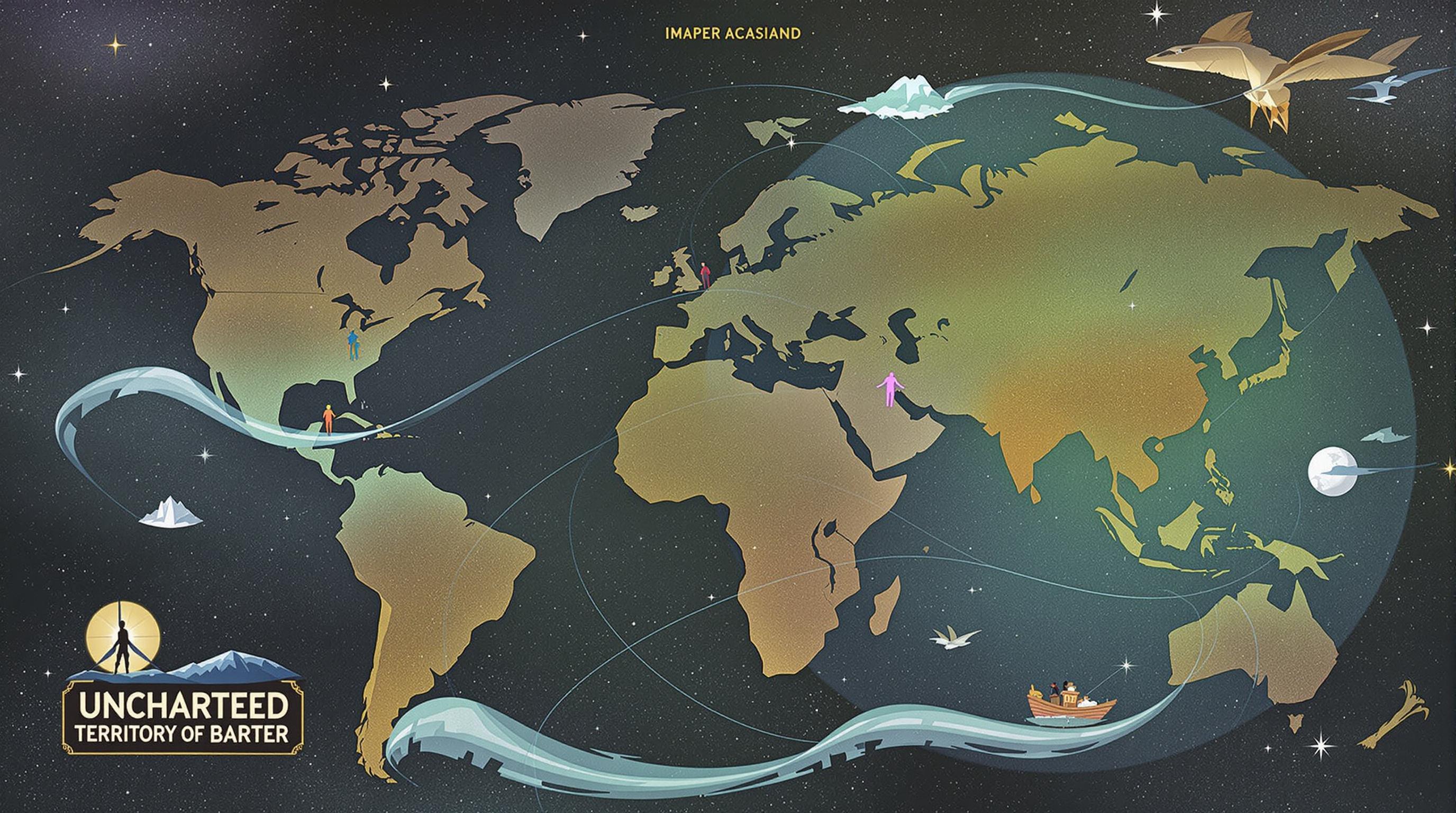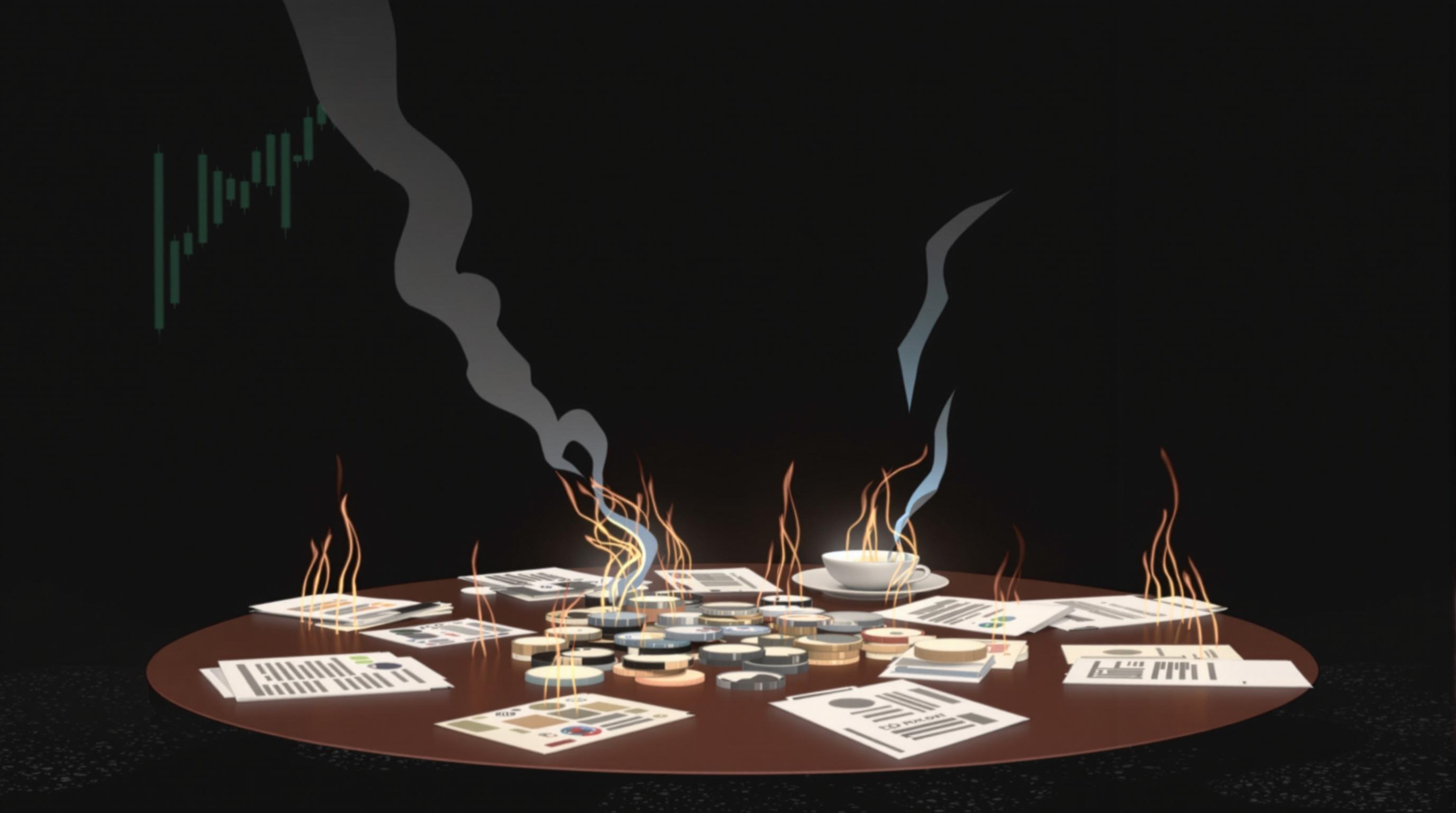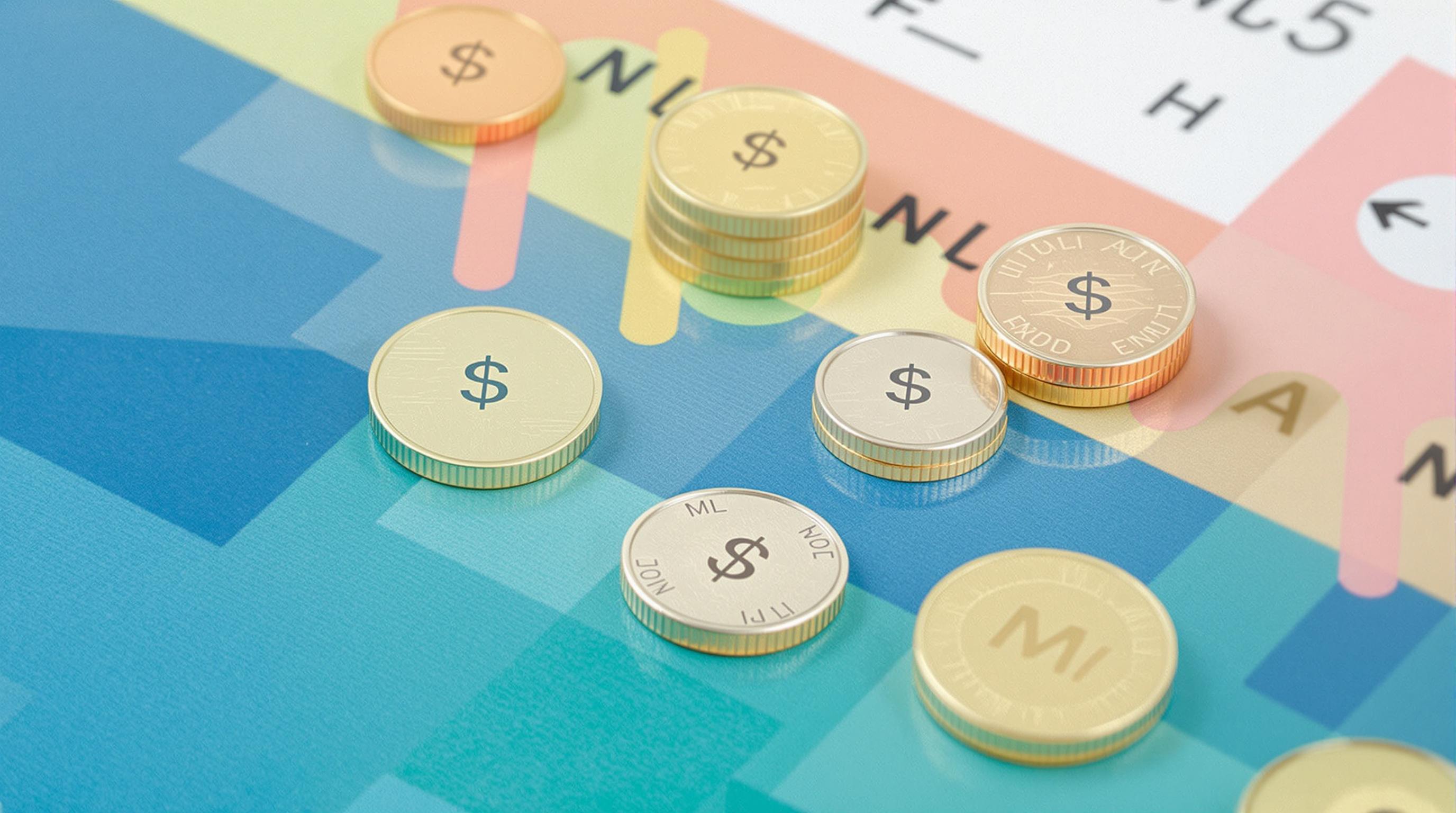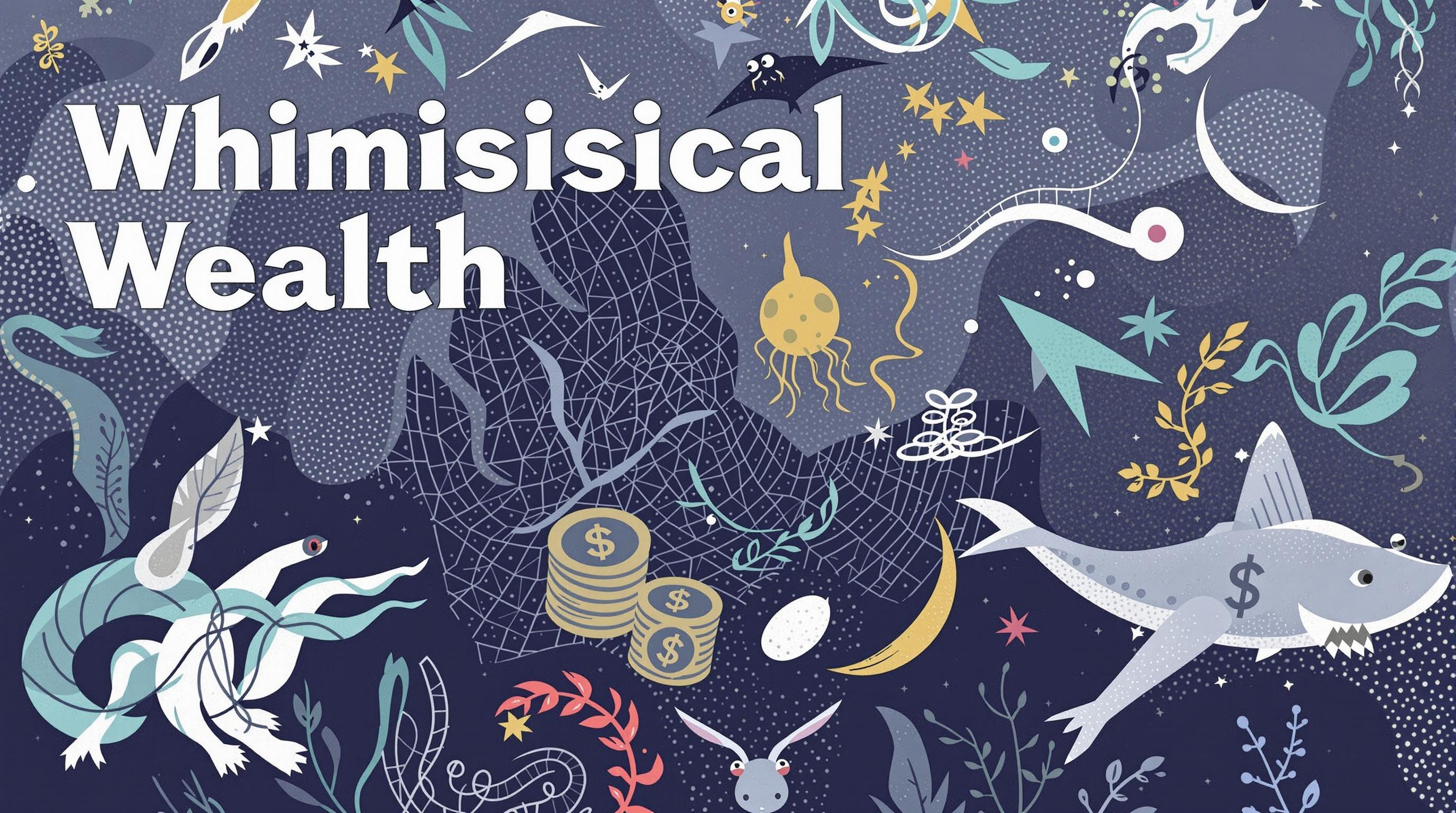Related Articles
- Invisible Threads: How Cultural Heritage Fuels Economic Growth in Off-the-Radar Communities
- How Unconventional Hobbies Can Boost Your Income: Exploring Unlikely Paths to Financial Enlightenment
- Uncommon Currents: How Waterways and Navigation Shaped Unexpected Economic Trajectories in Historical Contexts
- Whispers of Change: The Unlikely Role of Folklore in Crafting Today’s Privacy Policies and Data Protection Laws
- Surreal Shifts: The Unforeseen Role of Psychedelic Wellness in Global Consumer Preferences
- Unveiling the Financial Folly: How Conspiracy Theories Influence Market Behavior and Investor Sentiment
The Uncharted Territory of Barter: Reviving Ancient Trade Systems in Modern Digital Economies
The Uncharted Territory of Barter: Reviving Ancient Trade Systems in Modern Digital Economies
As the global economy evolves, ancient trade systems like barter are finding new relevance in the digital age. Through innovative platforms and community initiatives, barter systems are capturing the imagination of individuals and businesses looking for alternatives to traditional currency-based exchanges.
The Renaissance of Barter: A Modern Twist on an Ancient Practice
Once upon a time, in the bustling markets of Mesopotamia, traders exchanged goods based on mutual need rather than currency. Fast forward to today, and people might ask: Can we really revive such an antiquated system? It might sound far-fetched, but increasing numbers of people are doing just that—turning to barter as an alternative trading system in our modern, digital economy.
The Statistics Speak: Barter is Making a Comeback
According to the National Association of Trade Exchanges (NATE), approximately 3 million people in the United States now participate in barter, generating more than $12 billion in annual transactions (NATE, 2022). That’s no small potatoes! This revival is partly driven by economic necessity—especially in uncertain times—where cash flow is tight and traditional buying with money can feel limited.
How Does Barter Work Today?
In its most basic form, barter is the direct exchange of goods and services without the intermediary of currency. In modern settings, this has evolved into more sophisticated systems often facilitated by technology. Platforms like **P2P barter networks** and mobile apps now allow users to exchange services—everything from lawn care to graphic design—creating digital marketplaces that are reshaping how we view trade.
Case Studies: Success Stories in Bartering
Meet Lisa, a graphic designer who used to struggle with tight budgets during the slow months. Tired of cash limits, she joined a local barter network and began exchanging her design skills for photography services. The result? Not only did Lisa get the professional images she needed to boost her portfolio, but she also became part of a community that valued collaborations over cash transactions.
Similarly, consider the city of Portland, Oregon—widely recognized for its innovative approach to bartering. The city has established a program called **BarterLive**, where residents can trade services and goods, note for note, all coordinated through a community app. Such initiatives not only strengthen local economies but also tighten community bonds, with studies showing that neighbors are more likely to collaborate (Smith & Jones, 2023). It’s a win-win!
Barter vs. Cash: Beyond the Numbers
But you might wonder, why revert to barter when we have cash? While cash transactions are fast and convenient, bartering can offer unique advantages—like sustainability, community building, and even creativity! An entrepreneur needing a graphic design might explore calm coupon exchanges instead of cash expenditures, thus stimulating local creativity. It's a symbiotic relationship where everyone emerges a winner!
Addressing Common Misconceptions
“Barter is too complicated!” Many novice barterers throw this argument out as a deterrent. Yet, platforms like **TradeAway** and **Bunz** have simplified the process. You just create a profile, list what you’re offering, and wait for the right match! With ratings and reviews, the trust factor is also enhanced, creating a relatively safe environment for exchanges.
“It's not professional." Some still view barter as a less serious option for business transactions. However, companies like “Freecycle” and “Tradebank” are successfully incorporating barter into their business strategies—showing that with the right framework and permission, what was deemed “low-class” can transform into professional exchanges.
An Informal Survey: What Do People Think?
Curiosity piqued? Join our informal survey on social media asking participants how they feel about bartering. You’d find that individuals ages 16 to 30 are often even more open to bartering concepts than older generations, who may hold onto traditional monetary values. The common thread? A yearning for simplicity and sustainability, where value is determined by shared experiences rather than mere currency.
How Bartering Nurtures Relationships
Bartering is not just transactional; it builds trust and relationships. When you exchange services with someone, there's a deeper connection involved. You'll often find yourself chatting with the person you’re bartering with, sharing stories about your crafts or life experiences. It’s a refreshing change from the impersonal feel of cash transactions, where you leave with a receipt rather than a small bond of friendship.
A Humorous Perspective on Bartering
Can you imagine a world where restaurants accepted services instead of bills? “I’ll give you my respect for a spaghetti dinner tonight!” It seems absurd, yet many people appreciate a good laugh about the impracticalities of barter! Isn’t it comforting to picture that barter could actually make for humorous, albeit silly, exchanges?
The Digital Era: New Platforms for Bartering
In this brave new digital world, we have platforms aimed squarely at empowering barter. For instance, **Solidariteset** is an online platform that connects individuals in various cities, where people can offer skills, including web development, bartering them for tutoring in a foreign language. It’s all about exchanging our strengths!
Notably, online marketplaces have sprung up, fostering barter on a much larger scale. Through them, users can list items they want to get rid of and specify what they’re looking for in return. Websites are now more like thriving ecosystems of skill exchange, breaking more barriers than traditional markets could ever envision.
Challenges of Enabling Barter
While the revival of barter offers new dimensions to trading, it isn’t without obstacles. Many struggle with finding equal value in exchange transactions; how do you quantify a piano lesson against a plumbing job? The solution lies in embracing transparency and open communication. Most barter platforms also allow users to rate exchanges, creating a qualitative measure to assist in value determination.
Additionally, concerns around taxation can deter potential barterers. However, it is essential to recognize that the IRS treats bartering as a form of income just like cash transactions. The good news is that digital barter platforms are now addressing these concerns head-on, helping users navigate the complexities of tax regulations around trading goods and services.
The Future of Barter: A Blend of Old and New
As we gaze into the crystal ball of the economy, the revival of barter systems appears promising. Imagine cities where local businesses thrive entirely on barter systems; they would keep economies flowing without traditional hurdles like banking fees. Furthermore, globalization could mean that bartering could take on a whole new dimension with international networks forming around service and goods exchanges based purely on trust.
For younger generations aged 16-30, the integration of barter into a tech-driven lifestyle is not just a trend but the shape of the emerging economy. It signifies empowerment over depletion, an ingenious solution for the environmentally aware millennials who want everything to be sustainable while still enabling economic growth.
Final Thoughts: Embrace the Uncharted Territory
As we navigate the uncharted territory of barter and examine its place in contemporary society, it becomes apparent that a revival of these ancient trade practices could play an essential role in revitalizing our economies. It is an invitation for every individual and entrepreneur to rethink traditional notions of value. So why not give it a shot? Whether you’re looking to sharpen your skills or expand your network, engaging in barter could be both an enriching experience and a fun adventure.
In conclusion, as our world grows ever more intricate and digitalized, the tenets of ancient barter may help us ground ourselves in the more profound value of human connection, collaboration, and reciprocity—reminding us all of a time when business was just as much about relationships as it was about transactions.




